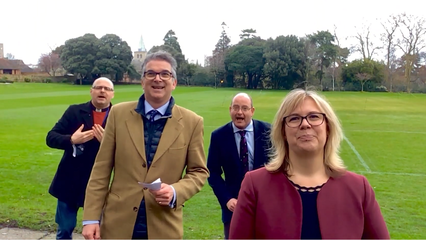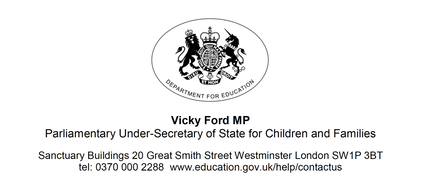|
Douglas Silas,
Specialist SEN Solicitor 8th March 2021
I often hear people saying that you can't do the wrong thing, if you try to do the right thing...
But this begs the question as to what the 'right' thing is, because what might feel 'right' to you, may feel 'wrong' to somebody else. Over the years, I have come to see that (apart from clearly 'wrong' acts, which greatly harm someone else), there is usually no one objective 'truth' in most situations, as two or more people usually just have their own 'truth', which then compete against each other, even where they may see exactly the same thing as one another. I guess we just have to always try and look as carefully as possible at any given situation, including through other people's eyes, before we determine what seems to us the right thing for us to do. We should also try to consider as many different perspectives as we can, before reaching any conclusion and acting accordingly. Hard I know isn't it? We are always in such a hurry in life and are therefore very quick to make assumptions or draw on our unconscious biases. Yet, when somebody does something differently to the way we would do it, or just has a different view from us, we are always very slow to let ourselves wonder if their way of doing things, or their view may actually be more 'right' than ours. So, always try to do what seems to be the right thing to do, but only after trying to see things from other people's perspective first. You don't have to always agree with them, but at least you will know in yourself (or you can later tell them) that you first looked at things also from their perspective, before you did anything. In this week's SEN Update you will find information about:
I know how busy everyone always is, so please feel free just to read the sections that are of interest to you or read everything; the choice is always yours.
Don’t forget, to ensure that you never miss one, you can get my SEN Updates personally by completing your email details above,
or by following me on one of the social media platforms I use (i.e. Twitter/Facebook). You can also share this SEN Update with others (please only do so if it may be relevant to them) by using one of the icons, usually to the right or at the bottom of this page.
BACK FOR GOOD?
I was very taken by this and had a big smile on my face when watching it! I can do not better than to quote Sky News when it said: "A group of teachers have filmed a parody video ahead of the return of students to classrooms on Monday. Four teachers from The King's School in Rochester banded together for a lockdown version of the 1995 Take That hit Back For Good. It's sung by school principal Ben Charles, head of the preparatory school Tom Morgan, and Catherine Openshaw, headmistress of the nursery and pre-preparatory school. Chaplain Father Padfield also features in the video, which has been viewed over 1,000 times on YouTube. However, the usual lyrics have been changed to reflect the current pandemic. The trio sing: "Whatever we said, whatever we did, we've been through it, we just want you back for good."
LATEST GOVERNMENT ANNOUNCEMENTS (AGAIN!)
Every Sunday afternoon now, I sit down at my computer to review the week's SEN/Education news, in order to prepare my SEN update, to go out on Monday morning. Although this week I am doing the same, this week feels a little bit different with many schools reopening physically on a part/full-time basis, after being closed and then open and then being open and then closed, albeit that there has been a lot of remote learning in-between for many children/young people. As I have said now many times, it feels a bit like the 'hokey-cokey' ("in, out, in out..."). Also, when I sit down, I have grown used to now first checking my emails from Friday evening, to see first if there is any latest news again from the Department for Education's (DfE's) SEND Division and, sure enough, there was once more. This week there was another letter from Vicky Ford MP, the Parliamentary Under-Secretary of State for Children and Families, which said: "Letter to parents and carers of children and young people with SEND, their families and those who support them. On Monday 22 February, the Prime Minister announced that all children and young people should attendtheir educational setting from the 8 March. Alongside this, the government published a document setting out the roadmap out of the current lockdown for England: COVID-19 Response - Spring 2021 - GOV.UK(www.gov.uk) and the Secretary of State wrote to all parents, carers and guardians (https://dfemedia.blog.gov.uk/2021/02/23/an-open-letter-from-education-secretary-gavin-williamson-to-parents-carers-and-guardians/). I am writing to you today to highlight key information and support which is provided for children and young people with SEND as they return to full attendance at schools and colleges. I want to start by thanking you all, as well as schools and colleges for your tremendous efforts in supporting the education, health andwellbeing of our children and young people during this current national lockdown. Over the past three months, I have undertaken a number of ‘virtual’ visits to special schools to hear from staff, children and young people with SEND about their experiences during the pandemic. It is abundantly clear that schools are absolutely committed to working with children, their families and specialist supportservices to ensure the continued delivery of high-quality education and support. In the next few weeks I will be writing a blog on the Council for Disabled Children’s website to review my experiences, so pleasekeep an eye out for that. Attendance at Education Settings From 8 March school attendance is mandatory again for all pupils and I strongly encourage you toensure that your children attend. I know that some of you will be feeling anxious about your children returning. If you have concerns you should discuss these with your school or college. Our guidance makes clear that schools and colleges should identify pupils and students who are reluctant or anxious about attending or who are at risk of disengagement and develop plans for re-engaging them. I know settings are working to ensure the smooth transition for all pupils and students back to the routines of in-school and in college learning. We have published a checklist to support staff in this which includes how to plan, communicate, be consistent, and how to support, monitor and improve, including for children with SEND. The link to the check list is here for your interest Checklist for school leaders to support fullopening: (publishing.service.gov.uk) It is possible that a small number of pupils and students will still be unable to attend school or college in line with public health advice to self-isolate because they: have symptoms or have had a positive test result; live with someone who has symptoms or has tested positive and are a household contact; are a close contact of someone who has coronavirus (COVID-19); or have been asked to shield by their GP or health professional. In the above circumstances schools and colleges are required to provide remote education for pupils and students. I recognise that some pupils and students with SEND may not be able to access remote education without adult support and so we expect schools and colleges to work with parents and carers on this. Further details on delivering remote education for children and young people with SEND is set out in Remote Education Good Practice If your child has been advised to shield because they are clinically extremely vulnerable, they shouldstay at home as much as possible until further notice and not attend their school or college. The current advice to shield will be reviewed soon and applies across the whole of England until at least the 31March. Public Health Advice I want to reassure you in regard to wider reopening that the Royal College of Paediatrics and Child Health has made clear that the overwhelming majority of children and young people with COVID-19 have either no symptoms or very mild illness. As new evidence or data emerges, we will update our advice accordingly to ensure that all our settingshave the right safety measures in place, which is known as the ‘system of controls’. We have developed the ‘system of controls’ measures with PHE for each of our settings. All settings must cover all elements ofthe ‘system of controls’, but the way the measures are implemented will differ based on their individual circumstances. The ‘system of controls’ measures outlined in our guidance (Safe working in education, childcare and children’s social care - GOV.UK (www.gov.uk)) create an environment for children and staff where the risk of transmission of infection is substantially reduced. Set out below are some of the key elements, which I have covered in detail to reassure you of the measures being undertaken. Testing As you will be aware schools and colleges have been delivering rapid asymptomatic testing since the beginning of January. Rapid testing remains an important part of the government’s plan to suppress the virus, in education and childcare settings and across society and we are further expanding it. This sort of testing means that people who have COVID-19 but do not have any symptoms, who might otherwise continue to attend educational settings, can be identified and self-isolate. This helps to break chains oftransmission. I recognise that testing children and young people with more complex SEND can be distressing and challenging so we have given specialist settings greater flexibility to make reasonable adjustments when delivering testing. Mainstream schools and colleges should retain minimal testing capacity on site so they can offer testing to pupils and students who are unable to test themselves at home. Specialist settings should work with pupils and their families to agree the most appropriate way of them participating in twice-weekly testing. Please see the guidance for further information - Special schools and other specialist settings: coronavirus (COVID-19) - GOV.UK (www.gov.uk). To help you to support your child or young person to self-swab at home, this NHS video demonstrate how to carry out a testand a detailed How to Guide for home testing, is available. In addition, if you are a member of a household, childcare bubble or support bubble of staff or a pupil you can get a twice-weekly test. I would encourage you and your family to consider seriously taking up the regular testing on offer, as this is a way that you can help keep Covid out of our schools and protect all those in your school community. You can find out more on how to access this at Rapid lateral flow testing for households and bubbles of school pupils and staff - GOV.UK (www.gov.uk). Furthermore, testing technology is developing all the time. We are continuing to explore other approaches to testing for children and young people who are unable to have a throat and/or nasal swab, such as saliva- basedtesting. Participation in the testing programme is voluntary. I want to provide reassurance that no child or young person should be tested unless informed consent has been given and the child and young person is willing to be tested. We’ve also made it clear to our schools and colleges that children and young people must still be able to attend even if they do not wish to be tested or are not able to be tested. However, I strongly encourage you and your children to take part if this is possible to help break the chains of transmission and manage the virus. These arrangements do not replace the current testing policy for those with symptoms. Anyone with symptoms (even if they recently had a negative test result via a rapid lateral flow device (LFD) test), should still self-isolate immediately according to stay-at-home government guidelines. Face Coverings Face coverings are really important, but we recognise that there are some SEND specific issues. We have published updated guidance for schools which includes a section on face coverings, which takes effect from 8 March. Further information can be found in Face coverings in education - GOV.UK (www.gov.uk), guidance for specialist settings and guidance for further education.There is separate guidance for early years and childcare providers and guidance for higher education. We have made it clear that some individuals are exempt from wearing face coverings. This applies to those who cannot put on, wear or remove a face covering because of a physical impairment or disability, illness or mental health difficulties. This also applies to those who speak to or provide help to someone who relies on lip reading, clear sound or facial expression to communicate. We have emphasised in our guidance that schools and colleges have duties to make reasonable adjustments for disabled children and youngpeople, to support them to access education successfully. Vaccinations The vaccine programme has made fantastic progress. As of 3 March 20,703,615 people have received their first dose. Phase 1 will capture all those over 50 years of age, and all those 16 years of age and over who are clinically extremely vulnerable or have certain underlying health conditions. This captures almost all preventable deaths from COVID-19 and will include thousands of staff in the education, childcare and children’s social care workforce as well as unpaid eligible carers who are in group 6. Moving forward, we aim to offer every adult aged 18 and over a first dose of the vaccine by 31 July. I strongly advise that people promptly take up the offer of vaccination when it is offered. This is the most effective way we can reduce the spread of this terrible virus. Education Recovery I recognise the impact of the pandemic on you and on children and young people. It is vital that we support children and young people to get back on track as soon as possible. As part of the announcements on education recovery made on 24 February, the new one-off £302 million Recovery Premium for state primary and secondary schools will build on the Pupil Premium to further support pupils who need it most,including those with SEND, in the 21/22 academic year. Additional weighting will be provided to eligible pupils in specialist settings, including special schools,alternative provision and hospital schools. Eligible pupils attending special units within mainstream schools will also attract the higher funding rate. In addition, mainstream schools, special schools and alternative provision (AP) will be able to access funding to provide summer schools, which will be able to target provision based on pupils’ needs, and theNational Tutoring Programme (NTP). Summer schools will not be mandatory, and it is up to individual schools to decide whether or not this is the best way to help support children and young people in their own community. Young people with SEND aged 19 to 24 who have an Education, Health and Care plan will be eligible for support via the 16 to 19 Tuition Fund, where they meet the fund criteria. Sir Kevan Collins has been appointed Education Recovery Commissioner to engage with parents, teachers, and education providers to review how evidence- based interventions can be used to address the impact the pandemic has had on learning. Sir Kevan will be advising the Secretary of State and the Prime Minister on a longer-term plan. Therapies On the issue of specialist support including therapies, we know that their delivery is an important part of what education settings offer to children with SEND. Guidance from NHS England to local commissioning bodies and health providers specifies that community health services that support children and young people with SEND (including therapy services) should continue to be prioritised. The redeployment ofAllied Health Professionals should therefore be avoided wherever possible. Our guidance for education settings confirms that specialists, therapists, clinicians, and other support staff for pupils with SEND can provide interventions as usual where this is reasonably necessary, including where this requires them to move between settings. In all circumstances, we encourage education settings to work collaboratively with local health services and families to ensure support can continue,even if this means some differences in delivery. Mental Health and Wellbeing I know that many of you have been very concerned about the mental health and wellbeing of your children throughout the pandemic. This is also something I am very focused on which is why we have worked with partners across the SEND sector to deliver training to the education workforce on supporting children and young people with SEND with their mental health and wellbeing. This includes funding the Whole School SEND consortium to deliver webinars on themes of wellbeing for pupils and staff, and funding the Autism Education Trust to develop a guidance and advice hub which includes guidance and tools on anxiety and wellbeing. We have also worked closely through Whole School SEND with the Association of Educational Psychologists (EPs) to produce a handbook for schools and education settings following critical incidents. A link to the handbook and related webinars is here: www.sendgateway.org.uk/resources/recovery-re-introduction-and-renewal-safe-and-successful-returns-school. To coincide with Children’s Mental HealthWeek (1 February), we published a blog, signposting schools to the range of mental health resources available to support children, young people, parents and staff. We have recently announced a £79 million boost to children and young people’s mental health support, including Mental Health Support Teams. Children and young people will benefit from significantly expanded mental health services as schools and colleges return, and the support teams – which provide early intervention on mental health and emotional wellbeing issues in schools and colleges – will grow from the 59 set up by last March to around 400 by April 2023. This national lockdown has been challenging for so many of us, but particularly for children and young people with SEND and their families. As we move to the next phase and recovery, engagement with you the families will remain a key part of our plans and I thank you for your continued engagement. Yours sincerely, Vicky Ford MP Parliamentary Under-Secretary of State for Children and Families"
LATEST NEWS ONLINE
Finally, in terms of news, here's a few news articles that I found of interest: Special needs pupils in England living in dread of returning to the classroom Back to school: 'I'm ready for a coffee in peace' Covid: Parents worry about lost learning as schools reopen Enough of the ‘lost generation’. Instead, let’s reimagine school for our children Pupil wellbeing must be priority, teachers say as classrooms in England reopen
Where can I find further information?
Again, aside from clicking on the relevant links for more information, I would also remind you of the very useful resources and information provided on the following websites: - IPSEA - Council for Disabled Children - Contact - Scope - Special Needs Jungle I would also highlight again the fact that you can now get digital copies of the magazines: SEN Magazine and Autism Eye which are both very helpful to any parents or professionals involved with children/young people with SEN. Keep safe until next week. With best wishes Douglas
P.S I understand that there are a number of educational or other useful resources now on the web, so I would be very grateful if you could let me know of any that you find that other people may find useful, so that I can direct people to it.
How useful do you find my SEN Updates?
Created with Quiz Maker
Comments are closed.
|
Archive
March 2022
|
© Douglas Silas Solicitors 2005-24
Authorised and Regulated by the Solicitors Regulation Authority (SRA no: 643718)
‘Douglas Silas Solicitors’ is the trading name of ‘Douglas Silas Solicitors Limited’, a limited company registered in England & Wales (company no: 10689991), whose registered office is Gable House, 239 Regents Park Road, Finchley, London, United Kingdom, N3 3LF. A list of members/directors may be inspected at our office.
Authorised and Regulated by the Solicitors Regulation Authority (SRA no: 643718)
‘Douglas Silas Solicitors’ is the trading name of ‘Douglas Silas Solicitors Limited’, a limited company registered in England & Wales (company no: 10689991), whose registered office is Gable House, 239 Regents Park Road, Finchley, London, United Kingdom, N3 3LF. A list of members/directors may be inspected at our office.






 RSS Feed
RSS Feed







